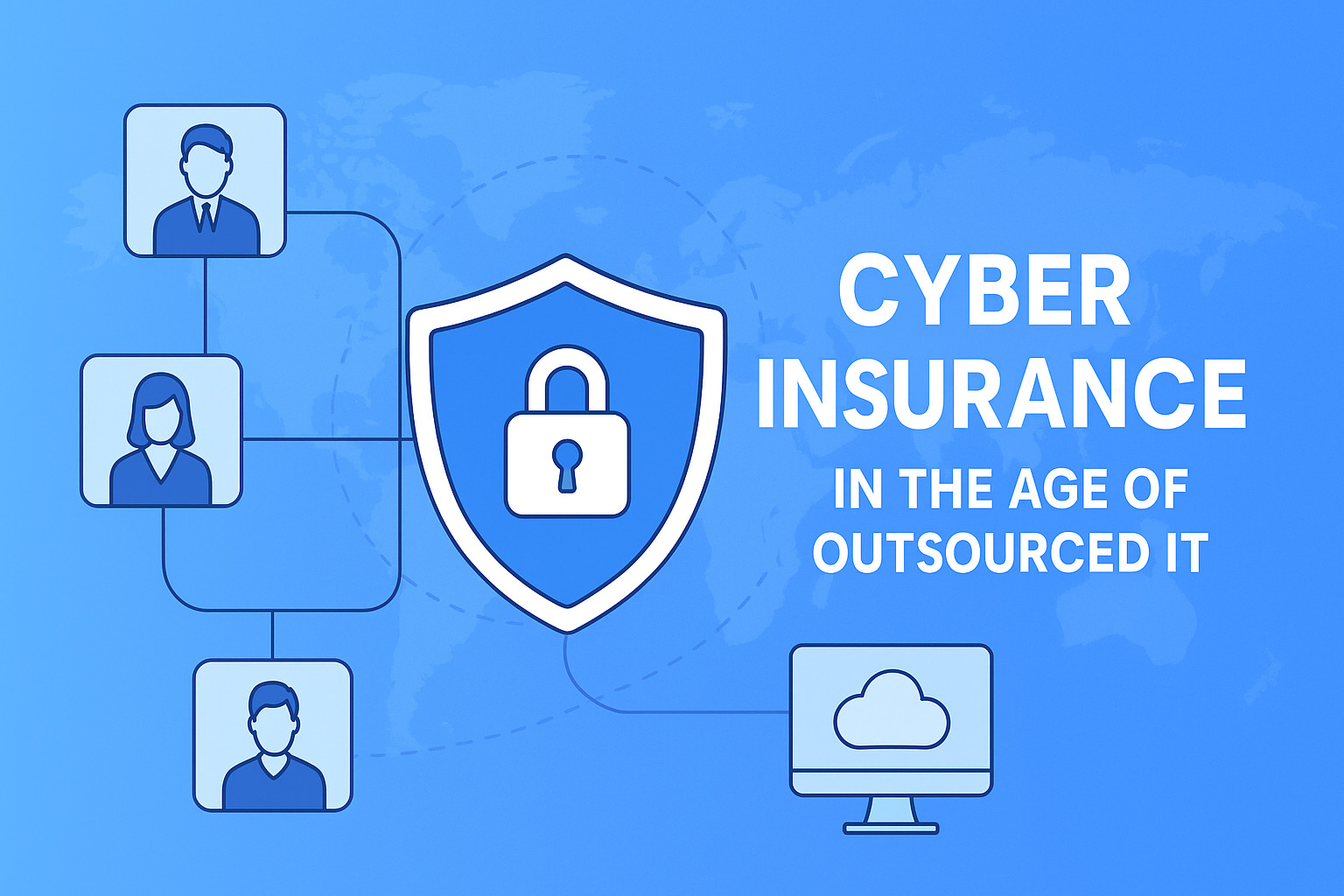Cyber Insurance in the Age of Outsourced IT: Do You Really Need It?
- 1 min read
Learn why cyber insurance matters for companies outsourcing IT services, and how to assess risks, compliance, and business continuity.

Introduction
Outsourcing IT brings flexibility and efficiency, but it also introduces new layers of cyber risk. With increasing regulatory pressure and evolving cyber threats, many companies are asking: Do we really need cyber insurance when outsourcing IT? This article explores the benefits, risks, and key considerations for businesses evaluating cyber insurance in today’s digital landscape.
The Growing Risk Landscape in Outsourced IT
- Outsourcing increases the number of third parties handling sensitive data.
- Cyberattacks are becoming more sophisticated and costly.
- Data privacy regulations like GDPR impose heavy fines for non-compliance.
- Reference: EU GDPR

How Cyber Insurance Fits Into IT Outsourcing
- Risk Transfer — Cyber insurance shifts part of the financial burden of breaches, downtime, or regulatory fines.
- Vendor Management — Insurers often require proof of third-party risk assessments, driving higher security standards.
- Compliance Alignment — Many frameworks such as ISO/IEC 27001 recommend risk management strategies that include insurance.
- Reference: NIST Cybersecurity Framework
Measuring the Value of Cyber Insurance
- Breach Cost Coverage — Helps recover financial losses from ransomware or data leaks.
- Downtime Impact — Insurance can offset business interruption costs.
- Reputation Protection — Policies often cover crisis management and PR expenses.
Risks & Mitigations
- Risk: Overreliance on insurance instead of proactive security → Mitigation: Combine insurance with strong internal and vendor controls.
- Risk: Policy exclusions leave gaps (e.g., insider threats, poor patching) → Mitigation: Review policy terms carefully with IT and legal teams.
- Risk: Vendors’ non-compliance invalidates coverage → Mitigation: Align contracts with shared security responsibilities.
Key Takeaways
- Cyber insurance doesn’t replace cybersecurity but complements it.
- Outsourced IT increases dependency on third parties, making insurance more relevant.
- The right balance includes strong vendor management, compliance, and tailored coverage.
Author: Matt Borekci
Contact Us: Euro IT Sourcing

Navigating GDPR and Beyond: Data Privacy in Outsourcing
Data privacy in outsourcing requires strict GDPR alignment, risk control, and secure vendor management to protect sensitive data in global operations.

Building a Secure IT Infrastructure: Why You Need Expert Guidance
Learn why expert guidance is essential for building a secure IT infrastructure, reducing cyber risk, ensuring compliance, and supporting scalable business growth.